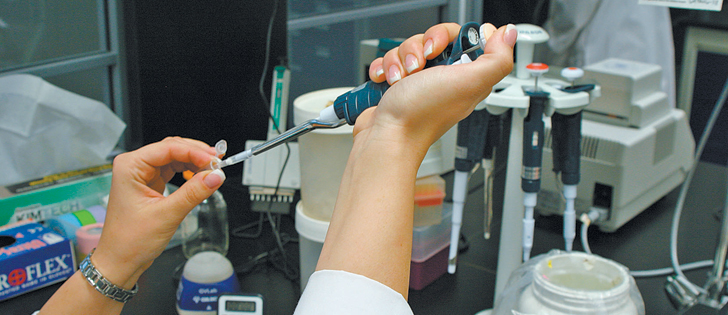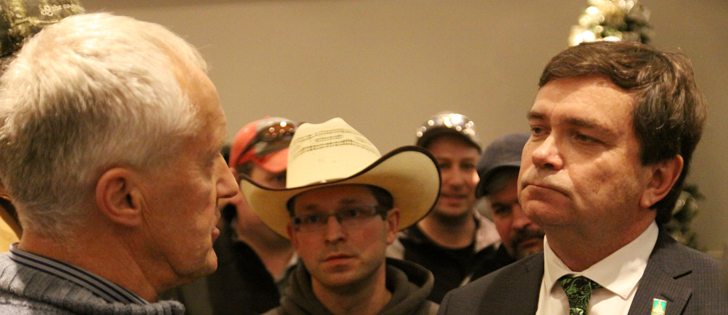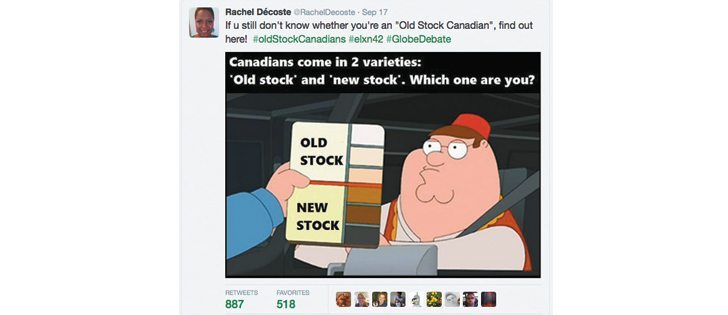It was a stunning victory.
After nearly a decade in political office, prime minister Stephen Harper and the Conservatives were relegated to opposition benches Monday night, unseated by Justin Trudeau and the Liberals who surged to a 184-seat majority.
It was a swift and decisive win.
The Liberals breathlessly swept entire regions of the country. All 32 seats in the Maritimes went red, tossing aside political heavyweights like fisheries minister Gail Shea, aboriginal affairs minister Bernard Valcourt, NDP deputy leader Megan Leslie, veterans’ affairs critic Peter Stoffer and defence critic Jack Harris.
Read Also

Kochia has become a significant problem for Prairie farmers
As you travel through southern Saskatchewan and Alberta, particularly in areas challenged by dry growing conditions, the magnitude of the kochia problem is easy to see.
In Toronto, finance minister Joe Oliver, immigration minister Chris Alexander and parliamentary secretary to the prime minister, Paul Calandra were shown the door as the Liberals claimed all 25 seats in Toronto. Even Ford Nation went red.
Among the southern Ontario MPs swept up in the Red surge was NDP agriculture critic Malcolm Allen, who lost by more than 2,300 votes in Niagara Centre. Allen had held the riding since 2008, serving as both deputy agriculture critic and then critic.
While Allen’s loss is a hit to the party’s agriculture benches, the NDP still has a front-runner for the position of agriculture critic. As senior NDP MPs saw political defeat across the country, the party’s deputy agriculture critic, Ruth Ellen Brosseau, was en route to a resounding victory in Quebec.
Brosseau, who came under fire in the 2011 election for vacationing in Las Vegas during the campaign, secured 42 percent of the popular vote in Berthier-Maskinongé. This despite a red tsunami in Quebec that saw 45 seats go to the Liberals, primarily at the expense of the NDP.
To see all of our election coverage visit Western Producer’s Election 2015 page
The Liberal victories continued on the Prairies in major centres like Winnipeg, Edmonton and Calgary. In Manitoba, the Liberals took seven of the province’s 14 seats – sweeping Winnipeg and relegating the Conservatives to five rural seats in the southwestern corner of the province.
Farmer and longtime agriculture advocate Larry Maguire, who was first elected to Parliament in 2013 in a byelection, was one of the five Conservatives re-elected in Manitoba. Maguire won 50 percent of the popular vote, beating Liberal candidate Jodi Wyman by more than 5,300 votes.
Meanwhile, four Liberals are headed to Ottawa from Alberta — two from Calgary and two from Edmonton — which marks the first wins for the party in either city since 1968 and 2004, respectively.
Most of Alberta remains staunchly blue, particularly in rural areas, with the Conservatives elected in 29 of the province’s 34 seats.
Saskatchewan bucked the Liberal trend with the Conservatives winning 10 of the province’s 14 seats.
Agriculture minister Gerry Ritz handily won his riding of Battlefords-Lloydminster by 60 percent of the popular vote. His win has raised questions, with some wondering whether one of the country’s most experienced agriculture ministers will sit in opposition or quietly head for the door.
So, what does this mean for Canadian agriculture?
Perhaps most critically, it means that the ratification of the Trans-Pacific Partnership is still possible. Trudeau has promised a full debate on the multibillion-dollar trade deal once the final text has been completed, repeatedly insisting the Liberals are not opposed to free trade.
However, Trudeau has also repeatedly said his party is committed to defending supply management, raising questions about how Canada’s prime minister designate will handle the concessions in the TPP.
Also unclear is whether Trudeau will approve the $4.3 billion compensation package promised to Canadian dairy, poultry and egg farmers by the former Conservative government.
The Liberals have also promised $80 million for the Canada Food Inspection Agency, $100 million over four years for agriculture research and $160 million over four years for an Agri-Food Value Added Investment Fund, commitments they will be expected to uphold.
But perhaps the most significant outcome Monday night is this: Canadian farmers and farm groups have become used to dealing with a senior cabinet minister whose party has been faithfully backed by the country’s rural communities and included several of their own in its back benches.
While Trudeau’s caucus includes several MPs with knowledge of the farm file, including current agriculture critic Mark Eyking, former agriculture critic Wayne Easter, and longtime Saskatchewan MP Ralph Goodale, it also includes a gaggle of urban MPs who live far away from the farm.
Rural-urban tensions are a real possibility, particularly on issues like bee health, GMO labelling, climate change and animal welfare. It’s a dialogue that Canada’s farm groups, stakeholders and lobbyists will have to address in the next four years.
















